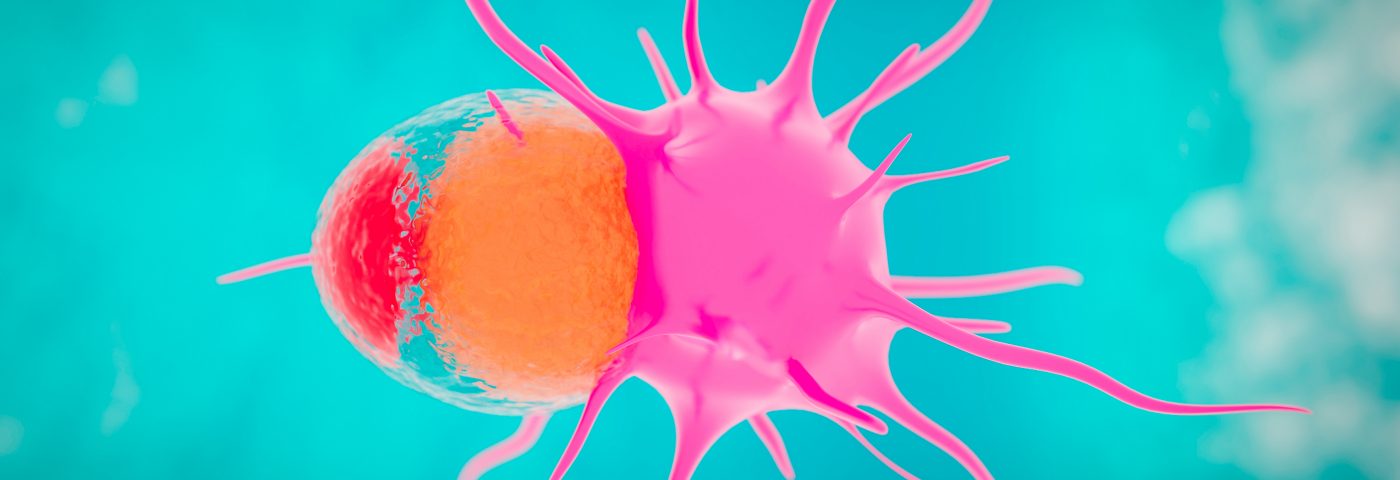A five-year grant of more than $2 million from the National Cancer Institute (NCI) will support research investigating the link between prostate cancer cells and the fatty cells — adipocytes — found in bone marrow.
Izabela Podgorski, PhD, associate professor of pharmacology at Wayne State University School of Medicine in Michigan, will lead the project being funded by the the NCI, which is part of the National Institutes of Health.
Podgorski was the first researcher to suggest, in 2010, there could be a link between both cell types.
“In the past few years our studies, and others, began to reveal that when you have tumor cells in the bone marrow they trigger some changes in the metabolism of adipocytes, and those changes ultimately help the tumor cells to survive and escape therapy,” Podgorski said in a press release. She also is co-leader of the Prostate Cancer Research Team at the Barbara Ann Karmanos Cancer Institute,
If not detected early, prostate cancer can spread rapidly to other tissues and organs, including the bones of the pelvis, hips, and ribs, as well as lymph nodes, and liver.
According to Podgorski, when cancer cells spread to bones, forming the so-called bone metastases, patients’ five-year survival rates plummet to less than 30%. If prostate cancer cells migrate from bones to other vital organs, patients’ chances of survival drop even more.
Based on earlier studies, Podgorski hypothesized that adipocytes living in the bone marrow may help malignant prostate cancer cells to survive and expand inside bones by providing them with fatty acids as a source of energy. Over time, cancer cells push adipocytes to produce and release greater amounts of fatty acids to sustain their fast metabolism and growth, resulting in cancer progression.
Podgorski also believes this interaction contributes to shield cancer cells from chemotherapy agents like docetaxel and cabazitaxel, which often are used to treat men with prostate cancer.
In previous studies, Podgorski and her research team discovered that adipocytes can change the way certain metabolic enzymes or pro-inflammatory molecules work. These include pyruvate kinase M2 (PKM2), one of the enzymes responsible for converting blood sugar into energy in the form of adenosine triphosphate (ATP), and interleukin 1B, a molecule that controls immune and inflammatory responses.
Alterations in the function of both PKM2 and interleukin 1B driven by the production and release of fatty molecules (lipids) by adipocytes helps cancer cells to grow and withstand standard prostate cancer therapies.
With support from the recent NCI grant, Podgorski hopes to demonstrate that blocking fatty cells from producing and releasing these lipid molecules, can increase cancer cells’ vulnerability to treatments, halt their growth, and prevent them from spreading to other parts of the body.
She also hopes the grant will help her to identify new therapeutic targets for prostate cancer, using a variety of techniques in cellular and animal models of disease, as well as in patient samples.
“I think we have a lot of tools to answer the questions we’ve asked. We already identified potential molecules to target, including PKM2 or interleukin 1B. Fat cells change the activity of these targets in the tumor to help it live. They also affect other processes, such as iron metabolism,” Podgorski said.
“The design of this study promises to show that lipids supplied by fat cells in the bone marrow are key contributors to chemoresistance. The study is also likely to identify new mechanistic targets for therapy,” she added.

